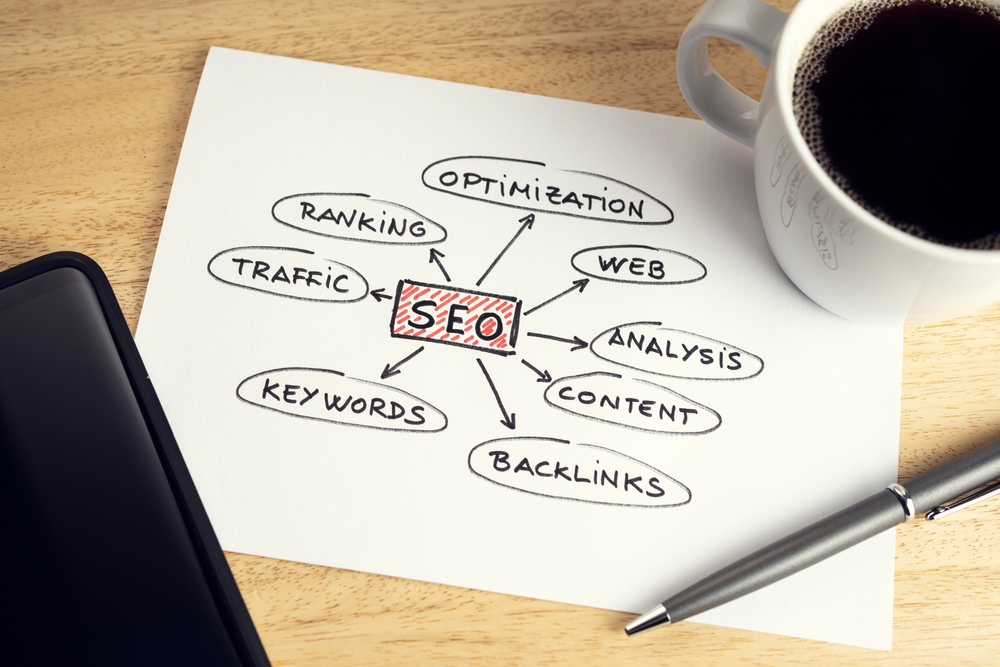
Boost Your Website's Rank: Effective SEO and Link Building Techniques

Boost Your Website's Rank: Effective SEO and Link Building Techniques
In today's digital world, having a strong online presence is crucial for any business. While there are various strategies to improve your website's visibility, search engine optimization (SEO) remains an essential tool. SEO involves optimizing your website to rank higher in search engine results pages (SERPs), increasing organic traffic and ultimately boosting your website's rank. In this article, we will explore effective SEO/SEM and link building techniques to help elevate your website's visibility online.
The Importance of SEO
SEO is vital for several reasons. First and foremost, it helps search engines understand and index your website's content better. By optimizing your content, you increase the chances of search engines crawling and indexing your website, leading to improved visibility. Moreover, effective SEO (or SEM) enhances user experience by making your website more user-friendly, faster, and easier to navigate.
Keyword Research
To effectively optimize your website, you need to begin with comprehensive keyword research. Keywords are the words or phrases users type into search engines when looking for specific information. By understanding what keywords your target audience uses, you can optimize your website accordingly. Using keyword research tools like Google Keyword Planner or SEMrush can provide valuable insights into the keywords relevant to your industry.
When selecting keywords, it's essential to strike a balance between high search volume and low competition. Highly competitive keywords may be challenging to rank for, especially if you're just starting. Instead, aim for long-tail keywords – longer and more specific phrases that target a narrower audience. For instance, instead of targeting the broad keyword "SEO techniques," opt for "effective SEO techniques for boosting website rank."
On-Page Optimization
On-page optimization refers to optimizing individual web pages to improve their visibility on search engines. Here are some key practices for on-page optimization:
- Title Tags: Create unique, descriptive, and keyword-rich title tags for each page of your website.
- Meta Descriptions: Craft compelling meta descriptions that entice users to click on your website in search results. Include relevant keywords but avoid keyword stuffing.
- Header Tags: Include HTML header tags (H1, H2, H3, etc.) to structure your content and highlight important sections.
- Keyword Placement: Place relevant keywords throughout your content, including in headings, subheadings, and within the body.
- URL Structure: Use SEO-friendly URLs that are concise, descriptive, and include relevant keywords.
- Image Optimization: Optimize images by reducing file size, adding alt text, and using descriptive file names.
Content Creation and Link Building
High-quality content and link building are other important factors in SEO (search engine optimization) . When creating content, focus on providing value to your audience. Develop informative, engaging, and unique content that addresses their needs and queries. This can be in the form of blog posts, articles, videos, infographics, or podcasts.
Link building involves acquiring hyperlinks from other websites to yours. Search engines consider backlinks as "votes" of credibility, indicating that your website is reputable and worth ranking higher in SERPs. Here are some strategies for effective link building:
- Guest Blogging: Contribute guest posts to reputable websites in your industry, including a link back to your website in your author bio.
- Broken Link Building: Find broken links on other websites and offer your content as a replacement, including a link to your website.
- Content Promotion: Promote your content through social media, email newsletters, and outreach to influencers in your niche.
- Directory Submissions: Submit your website to relevant directories, ensuring they are reputable and niche-specific.
- Collaborations and Partnerships: Collaborate with influencers or complementary businesses to create content and gain exposure.
Monitoring and Analytics
Regularly monitoring and analyzing your website's performance is crucial to ensure your SEO efforts are paying off. Utilize tools like Google Analytics to track key metrics, including organic traffic, bounce rate, average session duration, and conversion rate. These insights will help you identify areas of improvement and make data-driven decisions for your SEM/SEO strategy.
Frequently Asked Questions
1. What is SEO?
SEO, or search engine optimization, is the practice of improving a website's visibility and rank on search engine results pages. It involves optimizing various aspects of a website to increase organic (non-paid) traffic from search engines.
2. How long does it take to see results from SEO?
The time it takes to see results from SEO can vary depending on several factors, including the competitiveness of your industry, the current state of your website, and the strategies implemented. Generally, it takes several months to see significant improvements, but ongoing optimization is necessary to maintain and further enhance your rankings.
3. Are backlinks still important in SEO?
Yes, backlinks are still an essential factor in SEO. Quality backlinks from reputable websites serve as a vote of credibility for your website, signaling to search engines that your content is valuable. Focus on acquiring genuine, relevant backlinks from authoritative sources to improve your website's rank.
4. Can I optimize my website without technical knowledge?
While having technical knowledge helps in understanding the intricacies of SEO, it is possible to optimize your website without extensive technical skills. Many user-friendly SEO tools and platforms offer guidance and suggestions for optimizing various aspects of your website. Additionally, partnering with experienced SEO professionals can provide valuable assistance.
5. How often should I update my website's content?
Regularly updating your website's content is beneficial for both users and search engines. Aim to add fresh, valuable content frequently, such as blog posts or articles addressing current topics or industry trends. Additionally, reviewing and updating existing content periodically helps ensure its relevance and accuracy.
Other useful resources
- https://www.seoguru24.com/listing-category/seo-services/
- https://en.wikipedia.org/wiki/Search_engine_marketing